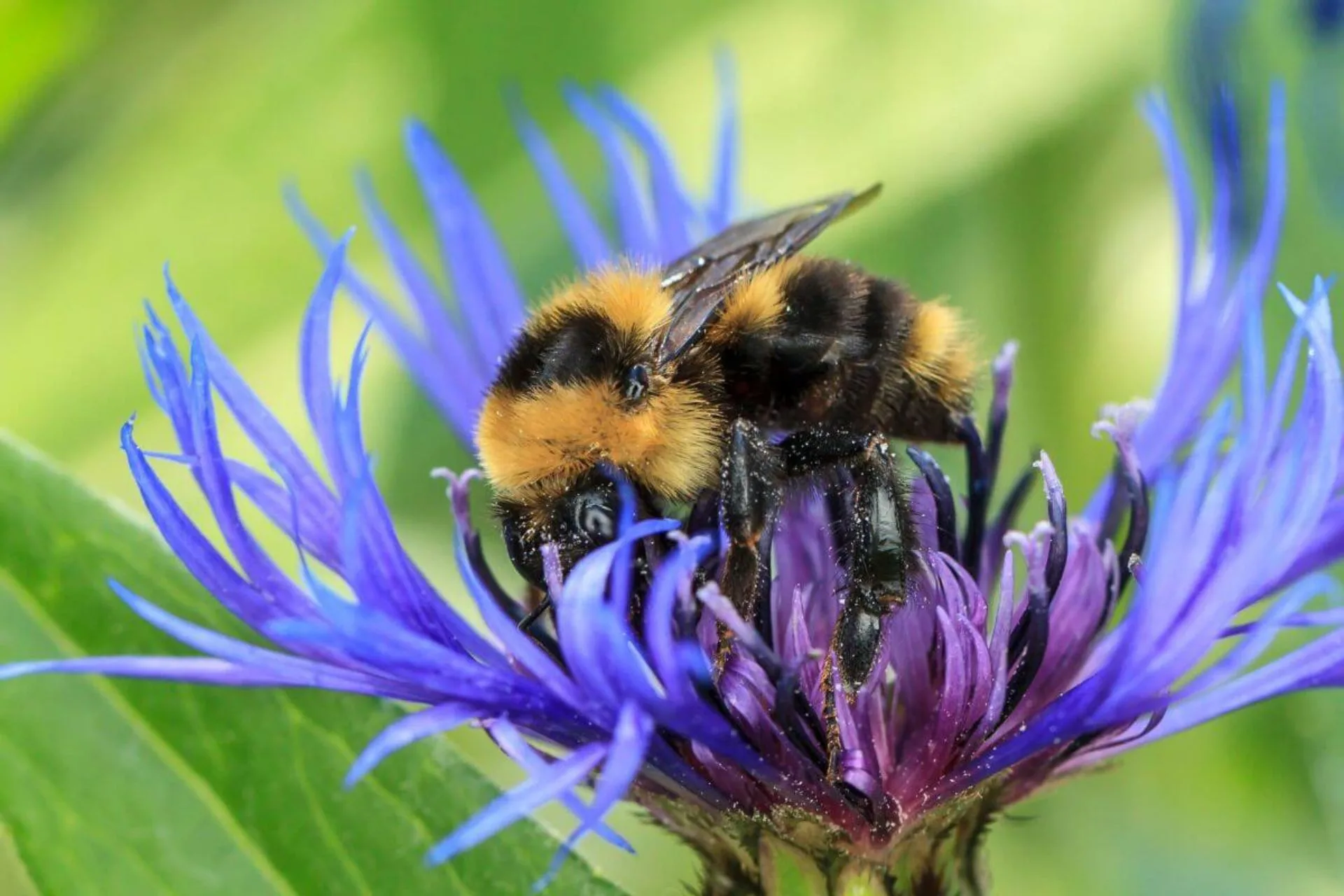Most folks do not know that Honeybees are not native to North America. Early settlers and Pioneers brought them over from Europe. Honey was an important ingredient for Mead and other Booze beverages. They are also important pollinators.

Native Bees are also important and durable insects that are so important in our ecosystem. Honeybees do not pollinate all plants. Some honeybees only pollinate specific plants that they are bred for.
Without Native Bees, Thanksgiving would be lacking several major ingredients and foods. Native bees pollinate tomatoes, eggplants, pumpkins, cherries, blueberries, huckleberries, and cranberries. Honeybees avoid carrots, Brussel Sprouts, broccoli, onions, green beans, sweet potatoes and squash.
Many Native bees are plant specific pollinators. These bees perform a behavior known as Buzz Pollination. They grab onto the plants and flutter their wings so that the plants vibrate and release pollen. There are also Squash bees that are only attracted to zucchini, pumpkins, melons, and squash. Miner Bees live underground and focus on apple trees. There are also certain bees that only pollinate berries.
Pollinators are in trouble. Honeybees are in decline due to diseases, pesticides, and competition with Africanized bees. Native bees like the Bumble bee are being affected from European mites and pesticides.
Good farmers look for ways to conserve pollinators.
Reduce or stop using pesticides. If you must use them, apply the chemicals in the evening when most pollinators are inactive.
Surround your gardens with native, nectar producing flowers. Local Agriculture agencies can recommend these helpful plants.
Leave tree stumps, dead branches, and fallen leaves on your property. Native bees will nest in this debris.
If you find bee nests, don’t destroy them. Contact a local beekeeper to help move them to a better location.
Be a Honey and help to protect our Bees!
Montana Grant








